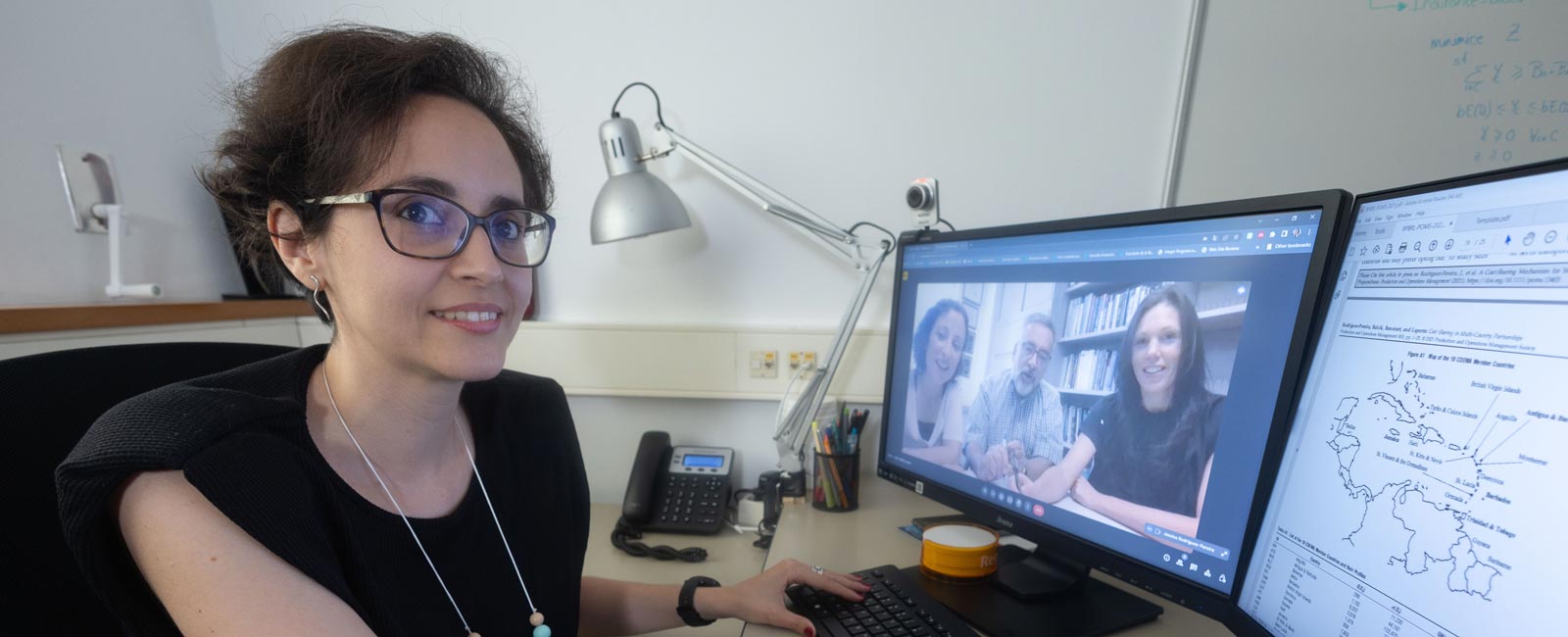
Jessica Rodríguez-Pereira, Burcu Balçık, Marie-Ève Rancourt and Gilbert Laporte
SPANISH SOCIETY OF STATISTICS AND OPERATIONS RESEARCH (SEIO)-BBVA FOUNDATION AWARDS
Best Applied Contribution in Operations Research
2023
For their paper “A Cost-Sharing Mechanism for Multi-Country Partnerships in Disaster Preparedness,” published in Production and Operations Management, which the committee described as “an interesting application in humanitarian partnership.”
CONTRIBUTION
When a natural disaster strikes, the time it takes for essential aid to reach those affected can mark a significant difference in the number of survivors. Countries at risk accordingly have preparedness facilities in place; warehouses where emergency supplies can be kept at hand for rapid distribution when needed.
The countries of the Caribbean have set up just such a preparedness network, which they run on a collaborative basis. The team formed by Jessica Rodríguez-Pereira, Ramón y Cajal researcher at the Universitat Politècnica de Catalunya; Burcu Balçık, Professor of Industrial Engineering at the University of Ozyegin, Turkey; Marie-Ève Rancourt, Professor in the Department of Logistics and Operations Management at HEC Montréal, Canada; and Gilbert Laporte, Professor Emeritus in the Department of Decision Sciences at HEC Montréal, Canada, has developed a tool to determine where warehouses can best be located and to divide their costs equitably among the partner countries.
The tool takes its principles from the world of insurance. “When you have health insurance, you pay a premium based on gender, age and what you are expected to spend. In our case, the equivalent parameters are risk and ability to pay the premium. The organization managing the network can decide what weight to attach to each factor, then the tool says what each country should pay. This weighting can be adjusted in accordance with use and economic standing,” Rodríguez-Pereira explains.
To ensure a fair and transparent share-out of costs, the tool borrows two principles from taxation theory: “One is horizontal equity, such that two individuals with the same characteristics will pay the same. The other is vertical equity, meaning those with more economic resources pay more. Furthermore, the system is transparent,” she affirms, “using only data that is in the public domain.”
The tool can be adapted to other situations that require the allocation of costs. “The difficulty lies in defining what is fair,” adds the researcher, “which in our case is determined by the risk in question and the ability to pay.”
Rodríguez-Pereira expresses her regret that statistics and operations research are little known to the general public, as they have an important role in today’s context of climate change and scarcity of resources: “It is vital to have access to tools that help us make decisions efficiently, based on scientific aspects and with efficient results.”
